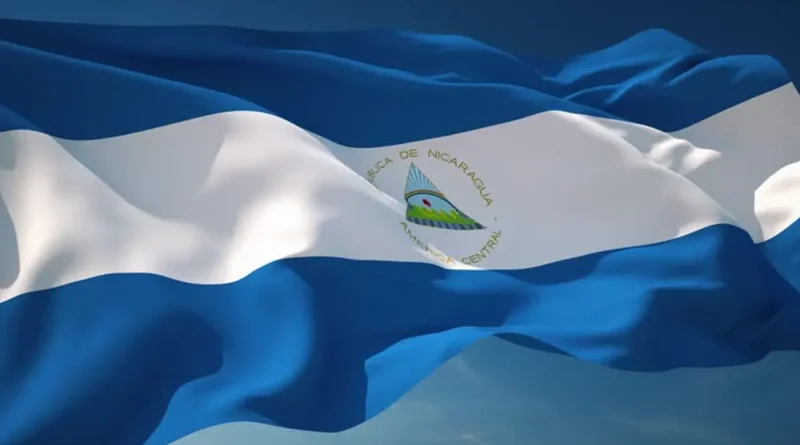NUEVA YORK – ESTADOS UNIDOS / El Gobierno de Nicaragua participó en el debate sobre Informe de la Corte Internacional de Justicia realizado en la Asamblea General de las Naciones Unidas.
A continuación, palabras íntegras del Gobierno de Nicaragua en el debate sobre Informe de la Corte Internacional de Justicia:
Asamblea General de las Naciones Unidas
Nueva York, 31 Octubre 2025
Señora Presidenta de la Asamblea,
Señor Presidente de la Corte Internacional de Justicia,
- Agradecemos la presentación del informe A/80/4 y nos y nos asociamos al Discurso que pronunciará Uganda en nombre del Movimiento de Países No Alineados.
Señora Presidenta,
- Desde 1947 la Corte Internacional de Justicia se ha ocupado de alrededor de 200 causas, entre litigios contenciosos y opiniones consultivas sobre cuestiones jurídicas, y solamente este año tiene pendientes 25 causas en su lista. En su presupuesto para el 2026, la Corte señala una discrepancia entre su creciente actividad y la disponibilidad de los recursos asignados, y señala que uno de los objetivos es poder “adaptarse a los riesgos creados por un mayor perfil público de la Corte”.
- El creciente número y diversidad de los casos que se presentan ante la Corte ha jugado un papel fundamental en la ampliación del papel de ésta tanto en alcance como en De igual forma, las solicitudes de opiniones consultivas reflejan la relevancia de la Corte para abordar urgentes controversias legales y morales para sus estados miembros y para la organización de Naciones Unidas en particular.
- Cuando los Estados ignoran las sentencias judiciales o aplican selectivamente las normas jurídicas, la autoridad del derecho internacional se ve erosionada. Este doble rasero debilita la percepción de equidad y universalidad de la que depende el derecho internacional y sus instituciones.
- No obstante, a pesar de esto, la prominencia de la Corte indica un reconocimiento más amplio del derecho como componente esencial de la gobernanza global que no es más que la creciente demanda de soluciones pacíficas y legales a los conflictos más urgentes del mundo.
Señora Presidenta,
- Nicaragua es uno de los estados que más ha recurrido a la Corte Internacional de Justicia con 15 casos en su haber e intervenciones en procesos consultivos. Actualmente Nicaragua es parte en el caso relativo a las Presuntas infracciones de ciertas obligaciones inter-nacionales con respecto al Territorio Palestino Ocupado (Nicaragua c. Alemania). Nicaragua presentó su Memoria en tiempo en julio pasado, y ahora procederá a responder a las Objeciones Preliminares y de Admisi-bilidad que ha presentado Alemania.
- Para muchos estados en desarrollo, presentar un caso ante la Corte Internacional de Justicia (CIJ) representa una carga financiera Esto también debe verse como un impedimento serio para maximizar el uso de la Corte, ya que los costos asociados con la presentación de un caso pueden llegar a ser prohibitivamente altos para los Estados con recursos limitados. Los estados en desarrollo pueden dudar en presentar demandas legítimas o intervenir en un caso simplemente por el costo.
- Lo anterior debe servir para repensar el mandato y reglamento que fuera aprobado en 2004 sobre el funcionamiento del Fondo Fiduciario del Secretario General para asistir a los Estados en el Arreglo de Controversias por el Conducto de la Corte Internacional de Justicia, ya que este contiene limitantes importantes que ponen de relieve y acentúan la brecha económica, con implicaciones directas en el estado de derecho a nivel internacional.
- De igual forma, Nicaragua toma nota del informe sobre dicho Fondo Fiduciario, en el cual se indica que durante el período que se examina no se hicieron contribuciones voluntarias y hace un llamado para que los países hagan contribuciones al mismo.
Señora Presidenta,
- En informes previos la Corte anunció una serie de decisiones procedimentales prácticas que han contribuido a la efectividad en términos de procedimiento. De igual forma, en ese mismo informe se anunció la creación de un Comité Especial de 3 Jueces para supervisar la aplicación de las Medidas Provisionales ordenadas por la Corte, y se auguraba que el comité examinará la información suministrada por las partes a ese respecto, informará periódicamente a la Corte y recomendará posibles opciones en la materia. Nicaragua considera que sería un importante paso que dicha información fuese incluida de alguna manera en los informes anuales que la Corte presenta a esta Asamblea General.
- En otro orden de ideas, el informe denota que 122 estados han participado en los procedimientos consultivos ante la Corte internacional de Justicia en alguna capacidad, incluyendo en la opinión sobre las Obligaciones de los Estados con respecto al Cambio Climático. Si bien es cierto las opiniones consultivas no son de obligatorio cumplimiento, las mismas son la expresión de derecho vigente y en este caso provenientes del órgano principal judicial de las Naciones Unidas, que no solamente reconoció que los estados tienen deberes según los tratados relevantes sino además bajo el derecho consuetudinario.
- En particular, la obligación adicional de tomar la iniciativa limitando sus emisiones de gases, de aplicar medidas capaces de alcanzar los objetivos establecidos y utilizar todos los medios a su alcance para evitar que las actividades realizadas dentro de su jurisdicción o bajo su control causen daños significativos conformidad con sus responsabilidades comunes pero diferenciadas y sus respectivas capacidades. La opinión concluye con la reafirmación de un principio fundamental, a saber: que el incumplimiento por parte de un Estado de cualquiera de las obligaciones señaladas constituye un hecho internacionalmente ilícito que entraña la responsabilidad de ese Estado.
Señora Presidenta,
- El estado de derecho a nivel internacional se encuentra en un momento crítico, y no nos podemos permitir retrocesos que erosionen las normas más fundamentales de las relaciones entre los estados. Los presupuestos para promover la paz y la resolución pacífica de las controversias deben reflejar este compromiso, en particular por parte de los países con más recursos, quienes han asignado miles de millones para presupuestos militares que han aumentado significativamente en los últimos dos años.
- Nicaragua retoma esta oportunidad para reafirmar que en todas las causas en las que ha sido parte siempre ha cumplido fielmente con sus obligaciones internacionales, y que espera reciprocidad en este sentido.
Muchas gracias.
A continuación, palabras íntegras del Gobierno de Nicaragua en el debate sobre Informe de la Corte Internacional de Justicia, versión ingles:
United Nations General Assembly
New York, October 31st 2025
Madam President of the Assembly,
Mr. President of the International Court of Justice,
- We are grateful for the presentation of the report A/80/4 and we associate ourselves with the statement to be delivered by Uganda on behalf of the Non-Aligned Movement.
Madam President,
- Since 1947, the International Court of Justice has dealt with about 200 cases, including contentious disputes and advisory opinions on legal issues, and this year alone it has 25 pending cases on its list. In its budget for 2026, the Court points out a discrepancy between its increasing activity and the availability of allocated resources, and notes that one of its objectives is to be able to “adapt to the risks created by a higher public profile of the Court.”
- The increasing number and diversity of cases brought before the Court has played a fundamental role in expanding the Court’s role both in scope and in awareness. Likewise, the requests for advisory opinions reflect the relevance of the Court in addressing urgent legal and moral disputes for its member states and for the United Nations Organization in particular.
- When States ignore court rulings or selectively apply legal norms, the authority of inter-national law is eroded. This double standard weakens the perception of fairness and universality on which international law and its institutions depend.
- However, despite this, the prominence of the Court indicates a broader recognition of law as an essential component of global governance which is really nothing more than the growing demand for peaceful and legal solutions to the world’s most urgent conflicts.
Madam President,
- Nicaragua is one of the states that has resorted to the International Court of Justice the most, with 15 cases to its credit along with interventions in consultative processes. Nicaragua is currently a party to the case concerning Alleged violations of certain international obligations with respect to the Occupied Palestinian Territory (Nicaragua Germany). Nicaragua submitted its Report on time last July, and will now proceed to respond to the Preliminary and Admissibility Objections submitted by Germany.
- For many developing states, filing a case before the International Court of Justice (ICJ) represents a significant financial burden. This should also be seen as a serious impediment to maximizing the use of the Court, as the costs associated with filing a case can become prohibitively high for States with limited resources. Developing states may hesitate to bring legitimate claims or to intervene in a case simply because of the cost.
- The foregoing should serve to rethink the mandate and regulations approved in 2004 on the functioning of the Secretary-General’s Trust Fund to assist States in the Settlement of Disputes through the International Court of Justice, since it contains important limitations that highlight and accentuate the economic gap, with direct implications for the rule of law at the international level.
- Similarly, Nicaragua takes note of the report on the said Trust Fund, which indicates that no voluntary contributions were made during the period under review and calls on countries to make contributions to it.
Madam President,
- In previous reports the Court announced a series of practical procedural decisions that have contributed to the effectiveness in terms of process. Likewise, the same report announced the creation of a Special Committee of 3 Judges to supervise the application of the Provisional Measures ordered by the Court, and it was predicted that the committee will examine the information provided by the parties in this regard, will periodically inform the Court and will recommend possible options in the matter. Nicaragua considers that it would be an important step if such information were somehow included in the annual reports that the Court submits to this General Assembly.
- In another order of ideas, the report indicates that 122 states have participated in the consultative procedures before the International Court of Justice in some or other capacity, including in the opinion on the Obligations of States with respect to Climate Change. Although it is true that advisory opinions are not mandatory, they are the expression of current law and in this case coming from the main judicial organ of the United Nations, which recognized that states not only have duties under the relevant treaties but also under customary law.
- In particular, the additional obligation to take the initiative by limiting their gas emissions, to implement measures capable of achieving the established objectives and to use all means at their disposal to prevent activities carried out within their jurisdiction or under their control from causing significant damage in accordance both with their common but differentiated responsibilities and too with their respective The opinion concludes with the reaffirmation of a fundamental principle, namely, that the failure of a State to fulfill any of the above-mentioned obligations constitutes an internationally wrongful act entailing the responsibility of that State.
Madam President,
- The rule of law at the international level is at a critical moment, and we cannot afford setbacks that erode the most fundamental norms of relations between States. Budgets to promote peace and the peaceful resolution of disputes should reflect this commitment, in particular by those countries with the most resources, who have allocated billions for their military budgets which have increased significantly over the last two years.
- Nicaragua takes this opportunity to reaffirm that in all the cases in which it has been a party, it has always faithfully fulfilled its international obligations, and that it expects reciprocity in this regard.
Thank you very much.
Esta entrada fue modificada por última vez el 31 de octubre de 2025 a las 4:10 PM


